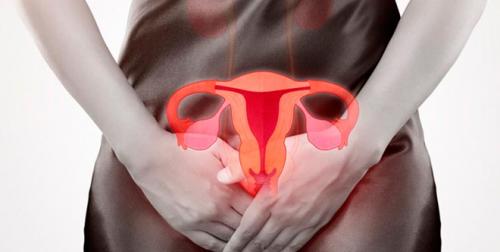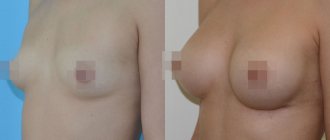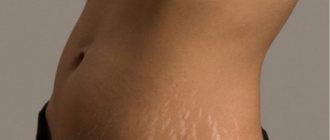Not all women succeed in loving themselves in their body and being calm about extra pounds. In an effort to transform their figure and quickly lose weight, many lose control and drive themselves to exhaustion. All organs and systems of the female body suffer from this, including reproductive functions. Due to sudden weight loss, monthly bleeding may stop. The consequences can be quite serious, so with the problem of how to get your period back after losing weight and restore the menstrual cycle, it is better to consult a doctor.
What to do if this happens?
To return the cycle and stop the development of amenorrhea, it is necessary that the fat layer in the body is about 20%. Gradually increasing your daily caloric intake, you need to gain weight to a safe level.
First of all, you need to see a doctor. Only a gynecologist will be able to assess the severity of the situation and take appropriate measures. Do not ignore your doctor's advice.
If you exercise to the point of exhaustion, reduce the load. Of course, sport is good for health, but you need to know when to stop. Replace heavy workouts with yoga, stretching or swimming.
Review your diet, pay more attention to nutrition. Recovery is a long period. There should be 5-6 meals a day. Eat more often, but in small portions. This way, metabolic processes will work faster. Give preference to quality products. The approximate percentage ratio of BZHU should look like this:
- carbohydrates 40-50%;
- proteins 30-40%;
- fats 20-25%.
Diagnostics
When visiting a doctor, what most often comes to the fore for a woman is the cessation of menstruation and associated infertility. The doctor only needs to interview the patient to understand that this is secondary amenorrhea caused by functional hypothalamic-pituitary insufficiency due to weight loss.
Two main points from the anamnesis:
- a woman follows a cosmetic diet;
- coincidence in time of sudden weight loss and cessation of menstruation.
However, not all girls want to admit to the doctor their excessive desire to lose weight and thereby contribute to an erroneous diagnosis and the prescription of incorrect treatment. Therefore, it is important to tell it like it is! Upon examination, the gynecologist notes decreased nutrition, an atrophic uterus and mucous membranes of the genital organs.
Hormone tests indicate a decrease in LH, FSH and estradiol. Tests with Clomiphene and progesterone can be either positive or negative. A test with gonadotropins gives a positive reaction, which indicates a functional disorder of the hypothalamic-pituitary system.
On ultrasound, the ovaries are of normal size, the uterus is reduced, the endometrium is thin - up to 5 mm.
What should you include in your daily diet?
- Fats. They are the ones responsible for women’s health and the well-coordinated functioning of the ovaries. This could be: flaxseed oil, vegetable oils, nuts, seeds, red fish, high-fat dairy products, avocados. Additionally, you can take Omega-3 in capsules.
- Sufficient amount of clean water.
- Meat. Beef, chicken, lean pork.
- Vegetables and fruits. Pomegranates, bananas, and beets will be especially useful.
- Greenery. Parsley, dill, lettuce, basil.
Why do they disappear

p, blockquote 3,0,0,0,0 –>
To restore your period after losing weight, you should first analyze what mistake you made that caused the cycle disruption. It can be hidden in the wrong choice of diet and training schedule, in ignoring well-being and torturing the body for the sake of one single goal - a slim figure. Here are some of the triggering factors:
p, blockquote 4,0,0,0,0 –>
- strict diets with a minimum daily caloric intake and a limited list of permitted foods;
- mono-diets;
- diets lasting more than 2 weeks;
- express diets;
- non-compliance with basic dietary recommendations and weight loss rules (we have already told you about them);
- lack of animal proteins;
- avitaminosis;
- a sharp decrease in cholesterol levels;
- too intense physical activity, lack of a regular training schedule;
- emotional overstrain, stress, neuroses, psychoses;
- anorexia;
- losing more than 20 kg in a short period of time;
- adolescence and premenopausal age.
Losing weight for a modern woman looks something like this: the most strict low-calorie diet + two-hour workouts in the gym on Monday, Wednesday, Friday + swimming pool on Tuesday + shaping on Thursday + gardening at the dacha on the weekend. And all this against the backdrop of an exorbitant workload at work and household chores. Chronic lack of sleep, eternal hunger, internal complexes - yes, weight loss in such conditions is guaranteed in the shortest possible time. But along with the extra pounds, your health also goes away. And the worst thing is if it affects the reproductive system.
p, blockquote 5,0,0,0,0 –>
All these factors lead to serious changes in hormonal levels and disruptions in the functioning of the pituitary gland and ovaries. The result is a failure of menstruation.
p, blockquote 6,0,0,0,0 –>
Folk remedies
Herbal medicines will help bring back your critical days. Our ancestors have long used them to treat many diseases. Here are a couple of remedies from the treasury of folk wisdom.
- Flax seeds. 1-2 tablespoons should be taken on an empty stomach with a glass of water.
- A decoction of mint leaves. Helps restore hormonal levels and reduce the amount of male hormones. A decoction is prepared from 1 tablespoon of dry leaves and 1-2 cups of boiling water. Leave for about half an hour.
- A decoction of wormwood can also help. For a liter of boiling water – 2 tablespoons of dry herbs. After this, you need to boil the broth in a water bath for another 15 minutes. Take two spoons before meals.
Of course, traditional medicine will not help cure diseases that could cause the cessation of critical days. Therefore, before drinking anything, you need to consult a gynecologist about symptoms, treatment and additional use of medicinal herbs.
ONLINE REGISTRATION at the DIANA clinic
You can sign up by calling the toll-free phone number 8-800-707-15-60 or filling out the contact form. In this case, we will contact you ourselves.
If you find an error, please select a piece of text and press Ctrl+Enter
How to get your teenager's period back after losing weight. Why do periods disappear when you lose weight suddenly?
Diets radically change life and this concerns not only the desired external transformation.
Prolonged fasting depletes the body. For this reason, women diagnosed with anorexia do not have periods at all. During puberty, parents should warn their daughters in advance about the dangers of this condition. According to statistics, it is young girls who more often suffer from eating disorders and psychological behavior, which leads to severe food restrictions and the subsequent absence of menstruation after dieting. Trying to lose weight in any way, many do not control their diet and exercise. As a result, the female body, sensitive to change, experiences severe stress. Menstruation disappears completely or becomes scanty.
Before looking for ways to restore the stability and regularity of menstruation, you need to find the reason for the absence of critical days after losing weight. It could be:
- deficiency of vitamins and beneficial microorganisms;
- lack of calories;
- metabolic disorders;
- hormonal disbalance.
Adults and growing women who abuse fasting and intense exercise should understand how important fat tissue is for the body.
They are the ones who participate in the exchange and absorption of hormones. Fat deficiency negatively affects the regulation of the menstrual cycle. When you lose weight, your periods disappear and become unstable and often painful. This causes disturbances in the functioning of the endocrine and digestive systems, as well as all reproductive processes. The liver and heart suffer. Uterine bleeding, the formation of polyps in the uterus and fibroids are possible. There is a possibility of developing cysts, tumors and infertility.

It will take a lot of time for teenagers and adults to regain their periods after losing weight, especially if serious pathologies are diagnosed. If no diseases are detected and pregnancy is not confirmed, to normalize the cycle it is enough to review the daily routine, nutrition and physical activity.
How to restore menstruation using hormonal drugs
In some situations, the gynecologist prescribes a course of contraceptives. These drugs are used to restore the cycle, because they contain all the necessary vitamins that help normalize menstruation. There are also two medical products for restoring menstruation, containing all the beneficial hormones necessary for the female body:
- Utrozhenstan - prescribed for progesterone deficiency. Consumed 3 times a day, 1 tablet. This medication should be used exclusively on certain days of the menstrual cycle, recommended by a specialist.
- Duphaston is prescribed when menstruation is delayed for more than 5 days and there is no pregnancy. The medication causes menstruation in the shortest possible time. The medicine must be used on certain dates of the menstrual cycle, indicated by the gynecologist. You need to consume Duphaston 1-2 times a day, one tablet.
- Pregnoton - used in the presence of a large amount of prolactin. The increase in this hormone is associated with excessive nervous tension. A bag of medicinal powder should be diluted in a glass of warm water, mixed thoroughly until completely dissolved and drunk with meals. It is recommended to consume the medication no more than once a day for three months.
How to restore menstruation using traditional methods
- Bay infusion. Pour 500 ml of hot water and 15 grams of bay leaf into a small saucepan. Place the dishes on the fire and cook for 5-7 minutes without covering with a lid. Carefully pour the broth into a thermos and let it brew, this will take about 3 hours. Drink 50 ml of bay infusion throughout the day.
- Wormwood tincture. Pour 3 tsp into a glass. wormwood and pour boiling water over it. Let the broth brew for 4 hours. Consume a medicinal drink of 50 ml 3 times a day, no more than 3 days.
- Burdock drink. Combine 50 grams of burdock and a glass of hot boiled water in a small saucepan. Place on the fire and cook for 15 minutes. The decoction should be taken 3-4 times a day after meals, 50 ml.
- Melissa tea. In a teapot, combine several lemon balm leaves and 1 tsp. black or green tea, then pour some boiling water over all ingredients. It is recommended to drink lemon balm tea 4-5 times a day.
Menstrual irregularities are a consequence of hidden diseases and hormonal imbalances. You can restore the cycle using folk remedies, but do not forget that it is better to spend five minutes in a gynecological chair than to spend many years being treated for possible problems associated with self-medication.
Amenorrhea and delayed menstruation are different concepts and should not be linked. The diagnosis of amenorrhea is made when there is no menstruation for six months or more, and a delay in menstruation is a cycle failure, characterized by scanty discharge or its complete absence during the period when menstruation should begin and there is no pregnancy. Menstrual irregularities can be accompanied by heavy or very scanty discharge, menstruation begins with a delay or its complete absence.
Recommendations
Unfortunately, the majority of the fair sex are very reluctant to visit a gynecologist. Moreover, they tend to neglect regular annual examinations. This attitude towards one’s reproductive health is considered negligent, and as a result one may not notice the initial stage of development of many gynecological problems.
It is possible that the absence of menstrual bleeding after losing weight is associated not so much with the diet itself, but with a progressive pathology, which has a hidden nature. Therefore, it is necessary to solve the problem only with the help of an experienced specialist, and independent therapy can cause the development of serious deviations in the functioning of the entire body.
If, after a gynecological examination, no diseases of the female reproductive system were identified, the doctor may write a referral for a consultation with an endocrinologist. A specialist in this field will already determine which hormones need to be tested for. Considering all this, it is easy to understand that the examination, as well as the treatment, must be comprehensive.
Ways to restore the menstrual cycle
Before moving on to restoring menstruation, a woman needs to visit a gynecologist's office. This is an important undertaking, since only a qualified specialist will be able to conduct a thorough examination of the female body, make a diagnosis and prescribe competent treatment.
- Nutrition. Analyze your diet. If you are following a diet, you must stop it. Consume more fruits and vegetables, vitamins will help organize your menstrual cycle.
- Physical activity and rest. Everything should be in moderation, do not allow the body to overwork, spend more time on vacation, watch your sleep hours.
- Sex. Regular sexual intercourse is the key to women's health.
- Stress. Try to avoid stressful situations, practice meditation, and abstract yourself from negative emotions.
- Scheduled inspection. In order to exclude the occurrence of menstruation disorders and other female problems, it is necessary to visit a gynecologist regularly, every six months.
Prevention
To completely restore the menstrual cycle, sometimes you have to undergo treatment for months. Therefore, it is much easier to prevent violations even at the stage of organizing weight loss. What should be done to achieve this?
p, blockquote 39,0,0,0,0 –>
Undergo a medical examination and rule out gynecological diseases. If they are present, treat them first.
p, blockquote 40,0,0,0,0 –>
Choose either a gentle diet for no more than 2 weeks, or adhere to the principles of proper nutrition with a decrease in daily caloric intake (not less than 1,200 kcal).
p, blockquote 41,0,0,0,0 –>
The diet on any diet should be varied: even with a protein diet, you can eat chicken breast, mushrooms, cottage cheese, cheeses, kefir, nuts, milkshakes. Lists of permitted products should be maximum.
p, blockquote 42,0,0,0,0 –>
Follow all recommendations prescribed for this diet. To avoid vitamin deficiency, drink a vitamin-mineral complex.
p, blockquote 43,0,0,0,0 –>
Agree on a training schedule with the coach. The frequency of intensive exercise is 2-3 times a week, and it is better to skip morning jogging on such days and do it on rest days.
p, blockquote 44,0,0,0,0 –>
Avoid any stressful situations.
p, blockquote 45,0,0,0,0 –>
Do not lose weight during adolescence (12-17 years) and premenopausal (45-50 years) periods.
p, blockquote 46,0,0,0,0 –> p, blockquote 47,0,0,0,1 –>
Menstrual irregularities are one of the most dangerous consequences of improperly organized weight loss. In pursuit of a slim figure and the ideals of modern society, you can lose yourself as a woman, losing the ability to conceive a new life. Is it worth it?
Women make a mistake when they try to lose weight with the help of a strict diet, but in the end they do not know how to restore their periods after losing weight and restore hormonal levels. The body reacts sharply to the duration of such diets. Lack of animal proteins and cholesterol leads to malfunctions of the pituitary gland and ovaries. As a result, forced menopause occurs.
Weight loss and menstruation. Diet rules during menstruation
Almost all representatives of the fair sex have experienced severe pain during menstruation or increased blood loss. In addition to special medications, a properly selected diet can help a woman survive this difficult period.
Experts advise patients to adhere to the following rules during menstruation:
- During this difficult period, women should completely abandon animal fats. It is their increased consumption during menstruation that increases a woman’s weight and increases pain. All this occurs due to the increased release of estrogen in the blood of patients with the abuse of spicy and fatty foods.
- Many doctors recommend that their patients completely switch to fish during menstruation. There is a sufficient selection of fatty varieties on sale, including trout and sardines, which will help support the female body and compensate for calorie losses during menstrual bleeding.
- Complete ban on butter. Salads and other dishes should contain only olive or flaxseed oil. These varieties give a woman the opportunity not to gain excess weight, but at the same time give most dishes an exquisite taste.
- Food should be rich in microelements and vitamins; a large amount of calcium, magnesium and vitamin B6 is especially important for a woman during this period. The list of products for replenishing the body with these substances is quite wide. You can include cottage cheese, kefir, buckwheat porridge, beans or beans in your diet. Even an ordinary banana can alleviate the patient’s condition.
- Most experts agree that during menstruation it is extremely important to include soy in your diet. It contains special substances - phytoestrogens, which can stop the surge of hormones and reduce the dependence of the female body on PMS.
- And, of course, a complete abstinence from alcohol, coffee, black teas, and tobacco.
Visit doctor
A visit to the gynecologist is an important step towards finding out the exact cause of interruptions in the cycle. And put aside your fears. The goal of a qualified physician is to help you determine the causes of your illness.
Only after carrying out certain manipulations will a specialist be able to establish an accurate diagnosis and understand how to normalize the menstrual cycle and bring the entire body back to normal.
Survey
First, the doctor needs to find out what could have contributed to the disruption in the menstrual cycle. He needs to know when your period disappeared, whether you had a pregnancy, childbirth, abortion or miscarriage. Tell us how often you encounter stressful situations, whether you follow a diet, what medications you take, what contraception you use. If, shortly before the onset of problems with menstruation, you traveled somewhere from the region where you permanently reside, then be sure to mention this.
Inspection
The next mandatory step is inspection. The doctor needs to assess the condition of the genital organs. He palpates the uterus, fallopian tubes and ovaries, and pays attention to. At this stage, it is already possible to make a preliminary diagnosis if the cause of the failure is still gynecological diseases.
Taking tests
During the examination, the doctor will take swabs for various infections. You will also have to donate blood for hormones, coagulation indicator and TORCH complex. Be sure to take samples on an empty stomach. Find out from your doctor exactly what period of your cycle you need to donate blood for hormones.
If some rules for taking tests are not followed, the picture may be inaccurate. In this case, there is a risk that you will be misdiagnosed.
Ultrasound and MRI
If during the initial examination the doctor discovers a cyst, fibroid or other pathological changes in the genital organs, he will write you a referral for an ultrasound scan. The equipment will be able to give a complete picture and measure tumors. If you suspect a change in hormonal levels, an ultrasound of the thyroid gland, kidneys and liver will be required. MRI should be used to examine the pituitary gland and hypothalamus to rule out tumors.
What does this mean?
Not only the complete absence of menstruation, but also inconsistent (or scanty) discharge can lead to very serious problems in the field of women's health. It’s hard to believe, but it is a strict diet that often becomes the cause of the development of diseases that lead to infertility. Amenorrhea also threatens with such ailments as:
- Uterine bleeding (very dangerous, many negative consequences for the whole body!);
- Inflammation;
- Cyst formation;
- Endometriosis;
- Formation of fibroids, myomas and polyps;
- The appearance of malignant neoplasms.
If signs of the diseases described above have already appeared, you should definitely go to a gynecologist. You cannot delay it - this can lead to significant complications.
Types of deviations
Jumps in the duration of the menstrual cycle, abundance or scarcity of discharge, severe pain are signs of deviations from the norm. Each deviation that is atypical for you has its own term:
- Algomenorrhea
is a general disorder of the menstrual period, which is accompanied by pain, contractions, vomiting and diarrhea; - is a term that characterizes the absence of menstruation for more than 6 months;
- - scanty discharge. The volume of excreted blood during the entire period of menstruation is less than 50 ml;
- Hypermenorrhea
- heavy discharge. The volume of menstrual fluid released may be more than 400 ml; - Metrorrhagia
is pathological uterine bleeding that begins after menstruation; - Oligomenorrhea
is a deviation in which the period of the menstrual cycle exceeds 40 days, and the periods themselves last 1-2 days; - Opsomenorrhea
is a prolongation of the cycle; the duration of menstruation may vary slightly; - Proyomenorrhea
- shortening of the menstrual cycle, which becomes less than 21 days; - Polymenorrhea
is an increase in the duration of menstruation from 7 days or more.
Maintaining drinking regime
Not only compliance with caloric intake is important, but also the amount of fluid you drink. You should not be guided by the advice to drink 1.5 liters per day, since the amount of drinking must be calculated individually for each person. For every kilogram you need up to 45 ml of water daily. It’s easy to calculate your norm if you multiply this value by weight.
Look at the same topic: The harms and benefits of eating sausages on a diet
Normalizing the water balance will allow you to restore your cycle faster. It should be plain water, not tea or coffee, without sugar or gas.
Main types of failures
- Hypermenorrhea - more than 400 ml of blood is released during menstruation.
- Hypomenorrhea - discharge is less than 40 ml.
- Polymenorrhea – menstruation lasts more than a week.
- Oligomenorrhea – duration is reduced to 2-3 days.
- Algodismenorrhea is very painful periods with additional symptoms such as nausea, vomiting, sudden jumps in blood pressure, and bowel movements.
- Amenorrhea is the absence of menstruation for more than six months without menopause, pregnancy or breastfeeding.
- Metrorrhagia - manifests itself as spotting in the middle of the cycle.
- Opsomenorea – bleeding occurs no more than once every 31-35 days.
- Proyomenorrhea - menstruation occurs more often than every 21 days.
To determine the type of disorder and its cause, you need to consult a gynecologist, and not ignore constant painful periods that come too rarely or often.
What to do with teenagers

p, blockquote 33,0,0,0,0 –>
Losing weight is initially contraindicated for a teenager, since his body is at a developing stage, and many systems (including sexual and reproductive) are still being formed. Reducing daily caloric intake and eliminating a number of foods from the diet can lead to irreversible processes and complications. Therefore, the most correct decision is not to allow a girl of 13-17 years old to go on diets and abuse her body.
p, blockquote 34,0,0,0,0 –>
But, if this does happen, it is possible to restore menstruation in a teenager after losing weight, although it is more difficult than in adults. Parents in such a situation should take the girl to an appointment with a gynecologist and follow all his recommendations. Most often prescribed:
p, blockquote 35,0,0,1,0 –>
- proper, balanced nutrition (read about its principles in a separate review);
- soothing herbs;
- vitamin and mineral complex;
- Cyclodinone (it has no age restrictions).
A doctor can even prescribe oral contraceptives for a teenager. Parents should not be afraid of such a recommendation and doubt the doctor’s qualifications. In this case, these drugs perform a completely different function - they normalize hormonal levels and the functioning of the reproductive system.
p, blockquote 36,0,0,0,0 –>
If a girl herself, despite her parents, strives to lose weight and constantly goes on diets, leading herself to anorexia, in such cases it is impossible to do without the help of a psychotherapist or clinical psychologist.
p, blockquote 37,0,0,0,0 –>
Much of the treatment will depend on the parents. They need to be patient and surround the teenager with care, attention, and love. Try to find out in a confidential conversation the reason for such a zealous desire to lose weight at the cost of your own health. Carefully, so as not to further injure you, you need to talk about the possible consequences, in particular about infertility.
p, blockquote 38,0,0,0,0 –>
Which cycle is normal
The menstrual cycle for each woman is individual, ranging from 21 to 35 days. Normally, the duration of critical days is no longer than 7 days; a woman should lose no more than 250 ml of blood during the specified period.
Signs of normal menstruation:
- volume – from 40 to 200 ml (average 80–120 ml);
- shade – from light red to brown;
- consistency – not thick, with the inclusion of small clots;
- smell – absent;
- pain - there may be a pulling sensation in the lumbar region, lower abdomen.
The fact that a cycle disorder has occurred is signaled by shortening or lengthening the intervals between menstruation, painful periods, changes in their color, smell and consistency.











